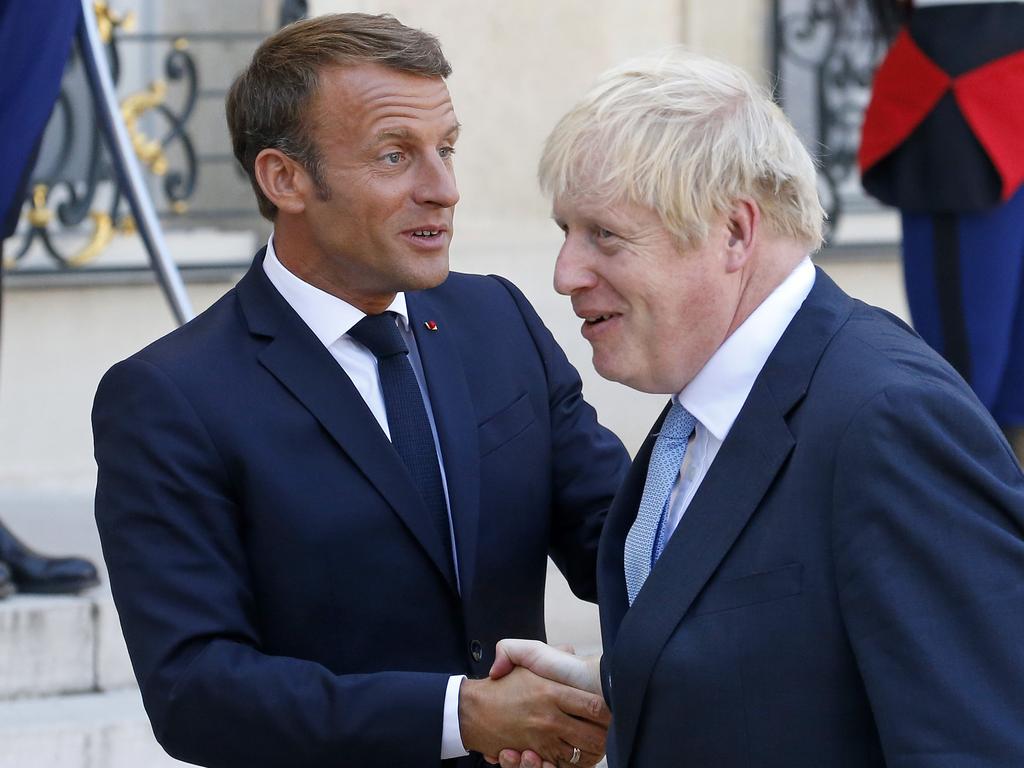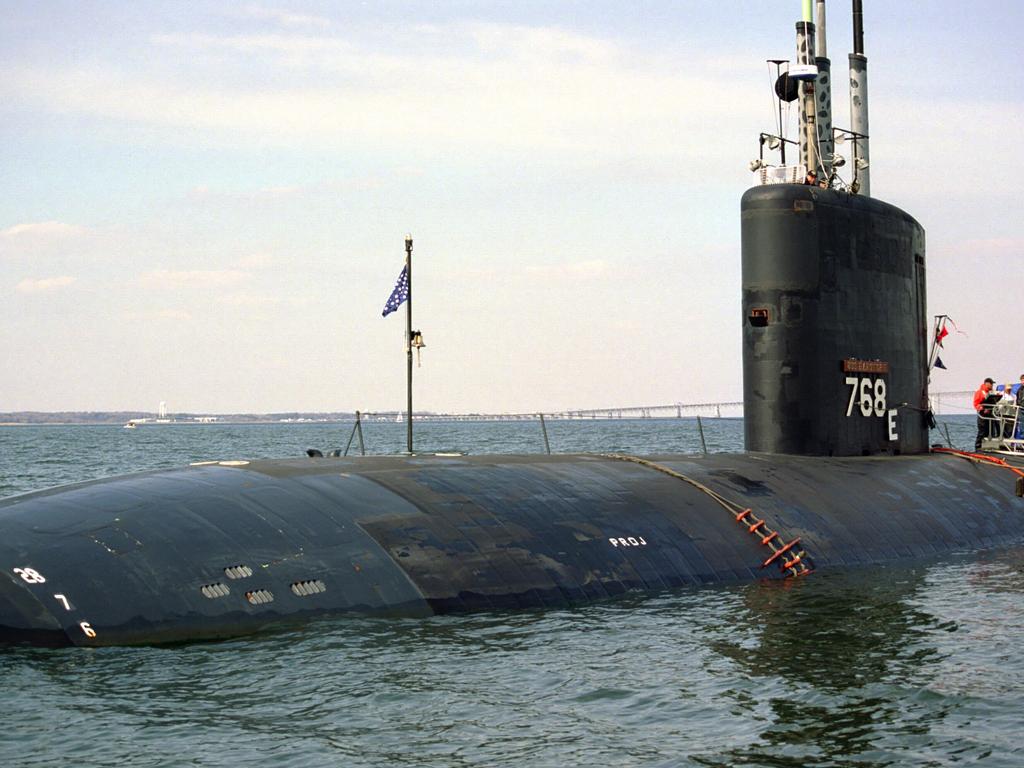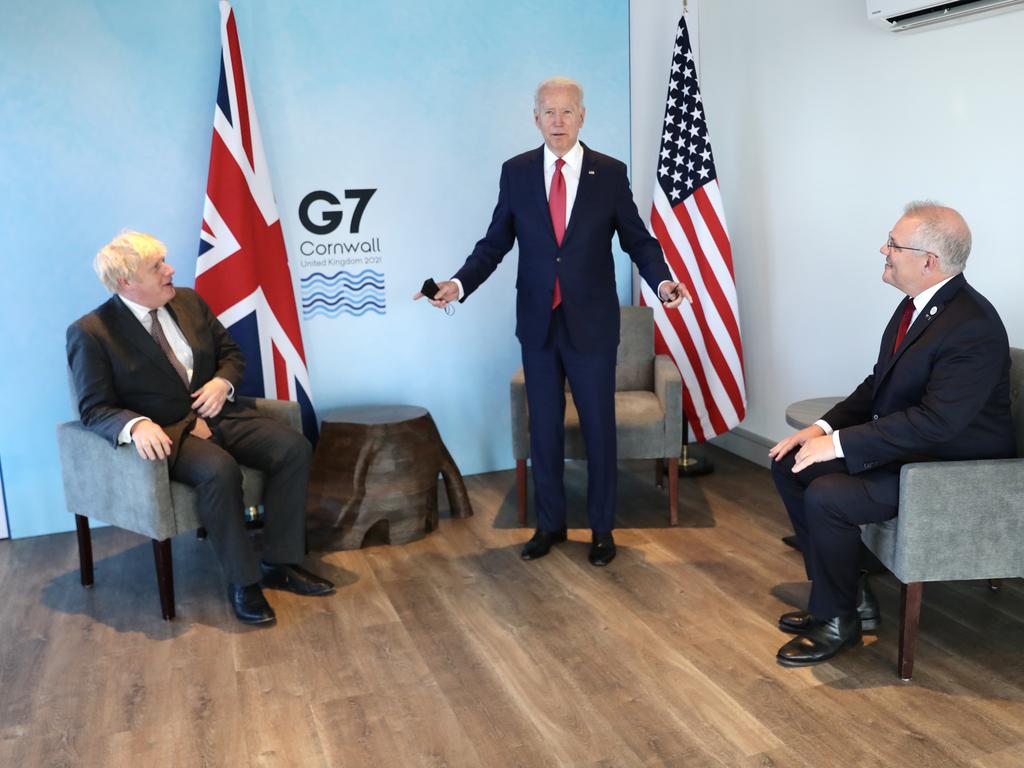
Ignore the French theatrics about “betrayal” and realigning their step-up in the region.
After Scott Morrison met with the French President at the Elysee Palace in June, his government was explicitly warned about the $90bn future submarine contract with Naval Group.
The Prime Minister told Macron Australia was determining its capability requirements and whether conventional submarines could address those needs. After meeting Naval and Macron, Morrison raised the spectre of contractual “gates”.
Macron tried everything he could to salvage the contract but the ship had sailed. The offer of nuclear submarines, combined with cost blowouts and delays associated with the Naval contract, had forced Australia’s hand.
With Macron facing the first round of French presidential election in April, domestic politics is a major factor in Paris’s emotional response to the AUKUS military pact and nuclear submarine deal with the US and Britain.

The commercial fallout is also considerable, given the jobs and cash the French miss out on.
The French are upset by confirmation that AUKUS was secured at the G7 summit in Carbis Bay, immediately before Morrison’s Paris visit. Macron had been at the summit sitting around the table with Morrison, UK Prime Minister Boris Johnson and US President Joe Biden.
But let’s put some facts on the table. France is a liberal democracy with five territories in the Indo-Pacific region – French Polynesia, New Caledonia, Wallis and Futuna, Reunion and Mayotte.
Standing beside Morrison in June, Macron said “we consider the partnership we have with Australia to be at the heart” of French Indo-Pacific strategy.
As an “Indo-Pacific power”, Macron said in addition to joint military exercises and Australian port visits, the French geopolitical strategy was to “be an actor alongside those who share our democratic values to ensure freedom of movement at sea, freedom in technology acquisition and defending of our values”.

“I know how much you are at the forefront of the tensions that exist in the region, of the threats, and sometimes of the intimidation, and I want to reiterate here how much we stand by your side,” he said.
The blood shed on French soil by Australian, US and British troops in the World Wars is testament to the century-old partnership between four democratic nations now at the centre of rising Chinese power and unprecedented geostrategic competition in the Indo-Pacific.
The Morrison government knew its decision to tear up the Naval contract would anger Macron and the French. They expected the backlash.
But most believe Paris’s threats to scuttle the Australia-EU free-trade agreement and the recall of French ambassadors in Canberra and Washington are a temporary speed hump.
The EU FTA noise is just that. Trade deals with the EU are difficult to secure. French threats to undermine trade negotiations are an easy form of retribution.
As Morrison said in New York this week, quoting a European Commission foreign affairs chief, “You don’t mix apples and pears”.
Australia, the US and Britain want France in the Indo-Pacific tent.
Now is not the time to let emotion override shared interests in the region.








France has no better friends in the Indo-Pacific than Australia and the US, and Emmanuel Macron knows it.